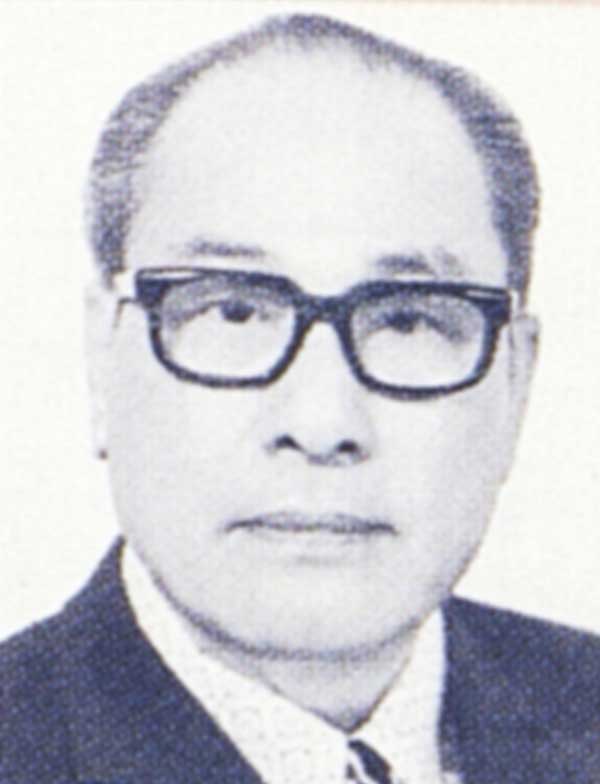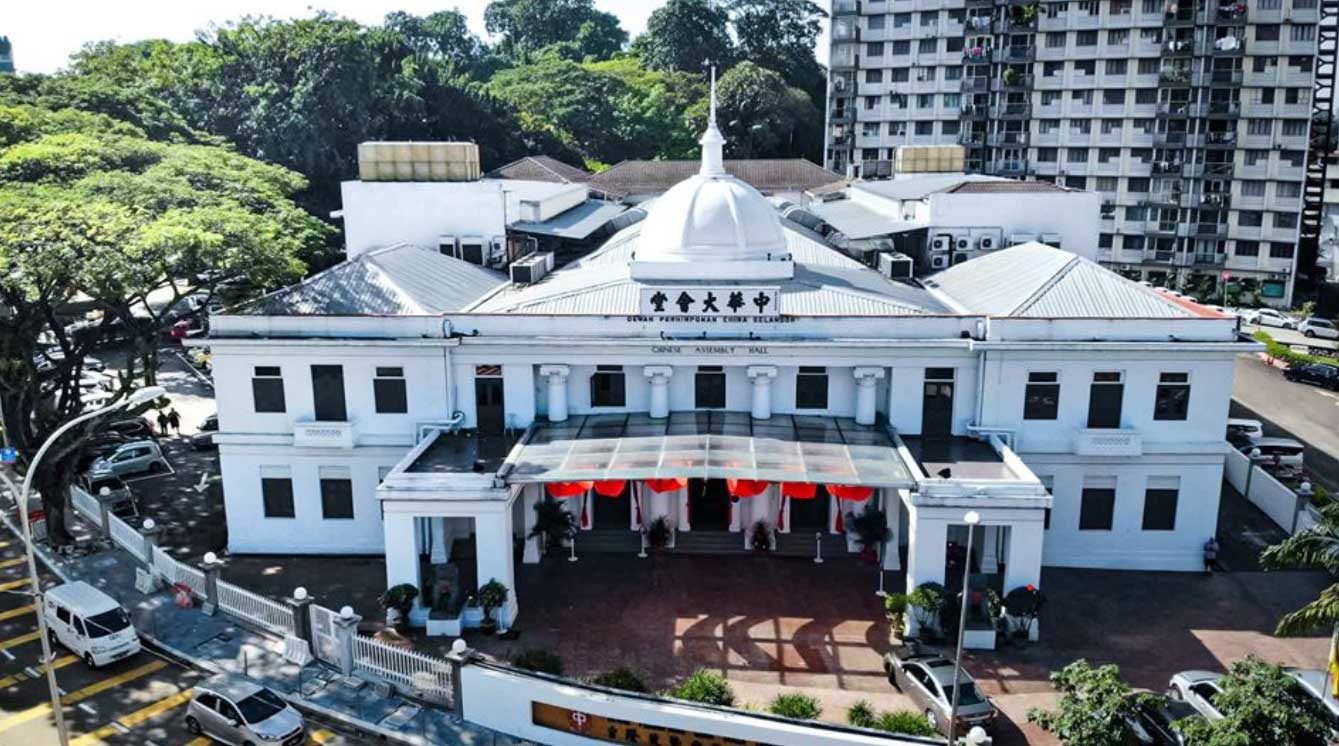The Engchoon Kuala Lumpur History Gallery






1906 - 1983
Li Yannian
Li Yannian was born on December 8, 1906, in Engchoon County, Fujian Province, China. He migrated to Southeast Asia with his elder brother in 1926 and settled in Kuala Lumpur from 1929 onwards. Li Yannian made his start in the rubber industry, initially working as a secretary for a British rubber company before establishing his own business. Through perseverance and hard work, by the 1950s, he had become a prominent rubber tycoon.
In the 1960s and 1970s, during the early years of Malaysia’s independence, Li Yannian seized opportunities in the construction industry, further enhancing his wealth. Alongside his successful career, he was deeply committed to social welfare, generously contributing to education, culture, medicine, and various community organizations. It is important to emphasize that Li Yannian’s philanthropy was not merely symbolic or obligatory; he gave generously, earning widespread respect and the title of a charitable elder, making him a sought-after figure in Chinese community circles.
In 1951, Li Yannian assumed the presidency of the Kuala Lumpur Engchoon Association. In 1957, he took over as President of the Federation of Engchoon Associations Malaysia, followed by Vice President of the Kuala Lumpur and Selangor Chinese Chamber of Commerce and Industry in 1961, Vice Premier of the Selangor Chinese Assembly Hall in 1963, and President of the Selangor Fujian Association in 1964. These successive positions elevated Li Yannian to the pinnacle of leadership within the Chinese community. By the 1970s, Malaysia’s Chinese community had entered what could be considered the era of Li Yannian.
Li Yannian’s prestige in the Chinese community was highly esteemed not only due to his roles in the aforementioned Chinese organizations but also because he earnestly worked through these positions to benefit the Chinese community. In the 1970s, as Chinese interests were increasingly marginalized, the political parties representing the Chinese, whether in power like MCA and Gerakan or in opposition like DAP, were unable to effectively safeguard the community’s interests. It was precisely at this time that Li Yannian assumed leadership positions in Chinese associations. He believed these associations could contribute significantly to the Chinese community and personally funded the hiring of professionals to manage the affairs of these associations.
The Selangor Chinese Assembly Hall, established in 1923, served as the paramount leadership institution for the Chinese community in Selangor. However, prior to Li Yannian becoming its fourth president, the hall had languished and was perceived as an ordinary association. Upon assuming the presidency, Li Yannian immediately embarked on reforms, bringing about significant changes to the operations of the Selangor Chinese Assembly Hall.
Taking office in May 1975, Li Yannian demonstrated his commitment to reforming the hall by amending its constitution and applying for registration as a non-profit limited company. He actively recruited new members and expanded its activities. Under his leadership, the hall opened its doors widely, rapidly increasing its membership from 22 units initially to 197 units by 1981. This expansion made the assembly hall more representative and infused it with new energy.
During Li Yannian’s tenure, the assembly hall established numerous committees to delegate responsibilities and engage more directors in planning and execution. These committees not only allowed non-executive directors to participate in organizational affairs but also brought in specialists to enhance the hall’s performance internally.
In 1976, the Selangor Chinese Assembly Hall held its inaugural annual celebration since its establishment. At the same year, an Academic and Literary Fund was established. In 1977, the first special commemorative issue of the hall was published, with a total of 600,000 words. In 1980, efforts were made to promote Mandarin speaking and reform the application of Chinese written language. In August 1981, the hall hosted the first month-long Chinese Cultural Festival. These activities were particularly noteworthy. In addition, under Li Yannian’s leadership during those years, the assembly hall organized numerous concerts, entertainment performances, art exhibitions, Mandarin phonetics classes, secretarial courses for associations, and frequently contributed time and money to charitable relief efforts. At the time, public opinion highly praised the transformation of the Selangor Chinese Assembly Hall, noting it had “awakened from a half-dormant state,” demonstrating impressive progress.
Furthermore, Li Yannian excelled in his leadership roles at the Malaysian Chinese Association of Commerce and the Selangor Chinese Chamber of Commerce. In the former, his greatest achievement was the unprecedented National Chinese Economic Conference held successfully in 1978. Regarding the latter, Li Yannian’s longer tenure (1975-1984) was marked by even more significant accomplishments. In fact, during Li Yannian’s leadership, the Selangor Chinese Chamber of Commerce began to develop substantially. Not only was the organization well-structured with diverse activities, but it also actively contributed to cultural and educational causes while promoting commercial activities. Under his leadership, various associations continuously reformed and reorganized affairs, striving for new developments. Li Yannian’s efforts in developing these associations sparked renewed interest and concern in the Chinese community, particularly the campaign to revive the Selangor Ching Wu Athletic Association that under his leadership. The movement, launched in 1972 after the association’s deregistration due to debt issues, garnered widespread support through the “One Person, One Dollar Campaign.” By January 1979, Li Yannian announced that Ching Wu had successfully repaid its substantial bank debts.
Li Yannian, with his visionary outlook, advocated for the establishment of a national umbrella organization or federation of Chinese associations, known as the “National Chinese Associations Central Organization.” He felt it was necessary to create a pivotal organization to unify and promote cultural and educational activities within the Chinese community, as well as to present unified positions on various issues to the authorities. This concept was initially proposed as early as 1974 by the Perak Chinese Assembly Hall but did not progress further. However, when Li Yannian proposed the idea in August 1978, it quickly gained momentum in Chinese society. Three weeks later, the joint Chinese Assembly Halls of Selangor, Perak, and Penang expressed their support and actively began planning and organizing works. After years of lobbying, the government finally approved the establishment of the Federation of Chinese Associations Malaysia in 1991. Li Yannian’s initiative in this endeavor is widely acknowledged and cannot be overlooked.
Under the leadership of Li Yannian, the Selangor Chinese Assembly Hall underwent very noticeable changes
Source: Provided by The Kuala Lumpur And Selangor Chinese Assembly Hall

Li Yannian was the founding president of the Associated Eng Choon Societies of Malaysia
Source: Provided by THE ASSOCIATED ENG CHOON SOCIETIES OF MALAYSIA

Li Yannian’s leadership in the Chinese associations also had its flaws. As a leader, he left the impression that he had significant limitations in terms of boldness and courage. While he managed to unify the Chinese associations, he lacked the charisma and assertiveness expected of a leader. He relied heavily on his personal assistants for everything, even having his speeches read by them on behalf of him, while he just stood by. It was said that because he couldn’t personally handle the tasks, he faced unexpected manipulation during the 1978 elections of the Malaysian Chinese Association of Commerce and Industry, resulting in his presidency being unexpectedly taken over by Wong Boon Bing.
Although he continued to hold other important positions in various Chinese associations, his reputation gradually declined after he failed to respond to the criticisms of Prime Minister Hussein Onn. On June 26, 1982, just before the board elections of the Selangor Chinese Assembly Hall, Li Yannian suddenly resigned from all national or state-level positions as president, chairman, or director of various associations, retaining only his position as chairman of the Kuala Lumpur Tung Shin Hospital board.
While some suspected ulterior motives behind Li Yannian’s resignation, the fact remains that he passed away on March 7, 1983, at his residence in Kuala Lumpur at the age of 77 due to health problems. His resignation was likely due to genuine health concerns, which should not be suspicious.
Note: This text is excerpted from “Biographical Dictionary of Malaysian Chinese Personalities,” Volume 2, pages 694-697, authored by Mo Shunzong.

